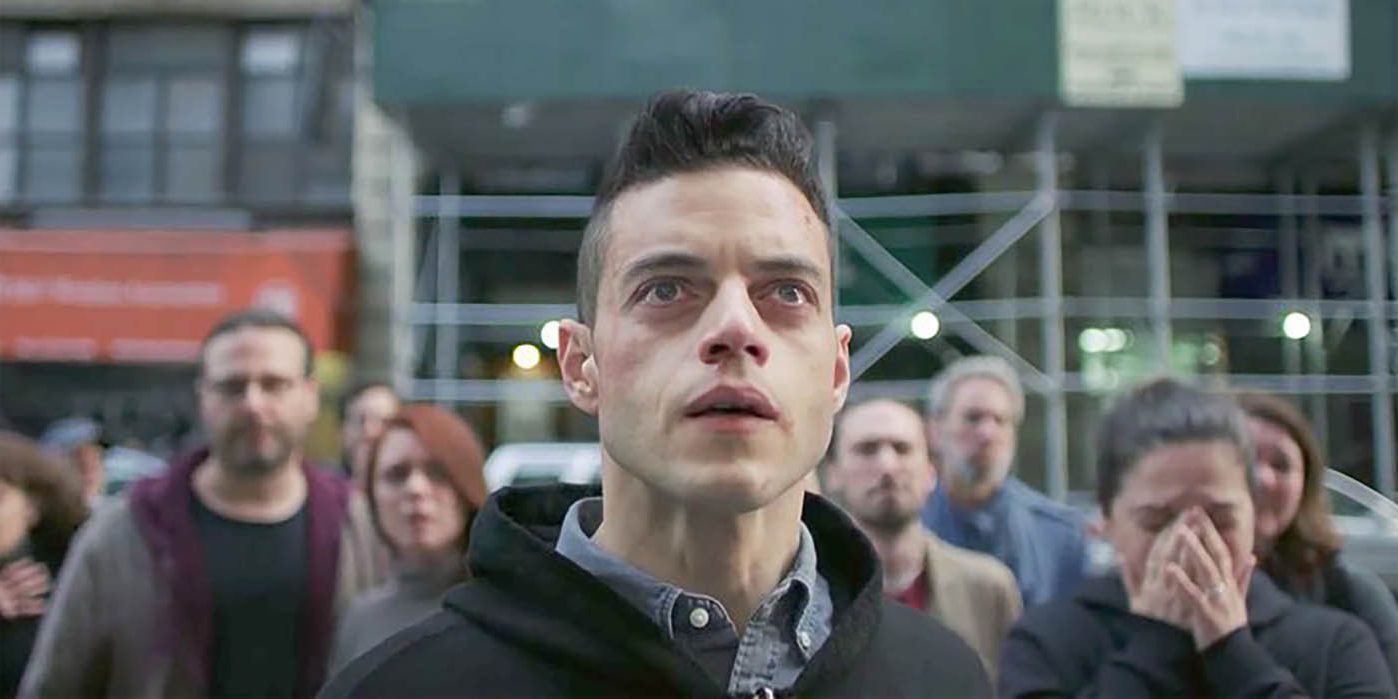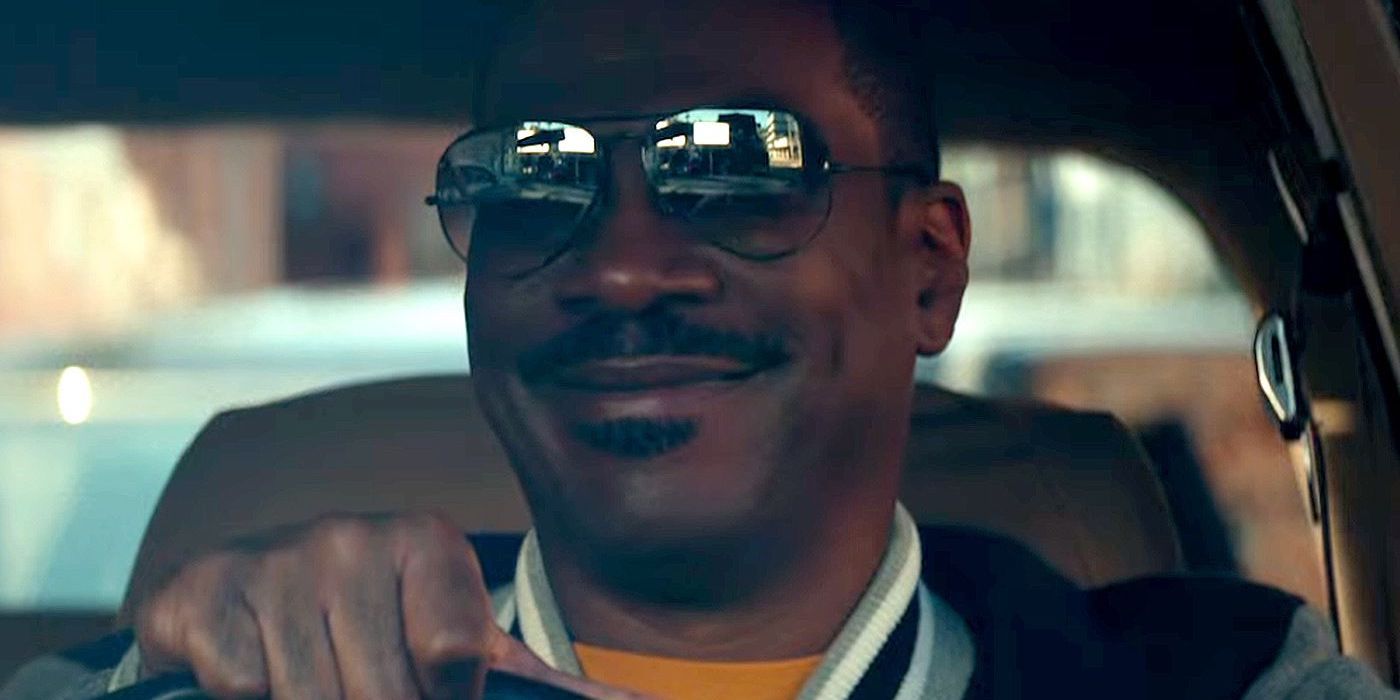Sam Esmail rose to fame after writing and directing the TV series Mr. Robot, which aired on USA Network from 2015-2019. He followed that up with the psychological thriller Homecoming, released in 2018 on streaming service Amazon Prime Video.
Both series look at a sinister version of society where hacking, technology, government and mind control can impact the way we live and think, and even what we believe. And while they both employ Esmail’s signature style, they are both very different shows.
So what did he do better in Mr. Robot and what was better in Homecoming? Here’s a run-down.
Mr. Robot: Touching On Current Societal Concerns

Mr. Robot blows the lid open on a potential catastrophe that is all too possible in the real world. The lead character Elliot Alderson, played beautifully by Rami Malek, is a brilliant but reclusive hacker who is hell-bent on taking down big corporations — namely one conglomerate, E Corp — that is making people slaves to money and business interests. When Elliot succeeds, the repercussions are terrifying, especially when you consider how much the story mirrors real life.
Homecoming deals with the issue of military workers and government organizations, but it feels less relatable for the average person.
Homecoming: Portraying Mental Illness

Homecoming does a great job of depicting mental illness, particularly among soldiers who are just leaving duty and trying to transition back to normal life. As social worker Heidi Bergman (Julia Roberts) speaks with them, we can see the trauma they went through and how it haunts them.
While Mr. Robot deals with mental illness as well, with Elliot living with a host of conditions, including depression, social anxiety disorder, and dissociative identity disorder, the approach is in-your-face, while Homecoming is more subtle.
Mr. Robot: Technology of the Future

Both series show how future technological development could impact the way we live and work, and how today’s technology can be twisted and warped by the wrong people or for the wrong reasons. But Mr. Robot shows how some of our newest technology can be hacked and used against us.
In one memorable scene, for example, Elliot’s sister Darlene, an equally capable hacker, taps into a woman’s smart home system and wreaks havoc, blasting the music, flickering the lights on and off, turning on the TV, and dropping the temperature on the thermostat to bone-chilling degrees.
Homecoming: Relatable Characters

The characters in Homecoming feel more relatable — like actual people you would meet in real life. Meanwhile, the characters on Mr. Robot almost seem like caricatures of themselves. Their emotions and senses are heightened, and the “bad guys” all seem like exaggerations of people who you might come across in the real world.
In Homecoming, Bergman seems like any typical social worker (or waitress) you might run into, while Walter Cruz, one of her patients, seems like the guy you’d want to have a beer with after work.
Mr. Robot: Edge Of Your Seat Suspense

Homecoming is a mind-bending thriller that has you thinking and wondering what’s really going on throughout the entire series. But you won’t find edge-of-your-seat suspense that will make you want to binge watch the entire thing. It’s a slowly developing story that is thought-provoking, compelling, and intense at times but slow at others.
Mr. Robot, meanwhile, often has you anxiously awaiting the next episode to see what’s going to happen, especially after the reveal of a massive plot twist.
Homecoming: Casting

While the cast is absolutely brilliant in both series, we have to give a slight edge to Homecoming because, well, Julia Roberts. It doesn’t get much better than her when it comes to Hollywood A-listers, though Mr. Robot’s casting of Christian Slater comes close. And while Rami Malek’s star is quickly rising, Roberts brought a lot of attention to the series as an Academy Award-winning actor. (Malek also won an Oscar, though it was well into Mr. Robot‘s run.)
The series also cast relative newcomer Stephan James, who delivers a mesmerizing performance that makes you feel a strong emotional connection to him.
Mr. Robot: Plot Twists

As noted, Mr. Robot has a few major plot twists that will make your jaw drop. One in particular will make you question everything you watched up to that point in the series.
While you know with Homecoming that something is not right and a big reveal is surely imminent, there isn’t a major twist that will leave your mouth agape. While it is still somewhat of a shock to discover what’s going on at the Homecoming Transitional Support Center, it doesn’t come close to the plot twists that you’ll encounter with Mr. Robot.
Homecoming: Tightened Story

Homecoming is an entire story told in 10, half-hour long episodes. You can binge the entire series in a single evening as if it were an extended or two-part film. Thus, the storyline is much tighter and concise, and things happen quickly.
With Mr. Robot, the series aired for 4 seasons with a total of 45 hour-long episodes; some ran even longer than an hour. It’s a story that develops slowly with many subplots, new character introductions, and, of course, those twists and turns.
Mr. Robot: Appealing to Younger Generations

Those of the younger generation might be more inclined to watch a series like Mr. Robot, which deals with issues they are familiar with or talked about a lot by their generation, including mental illness, hacking, technology, corporate greed, and social responsibility.
Homecoming, meanwhile, might appeal to a more mature audience given the emotionally intense subject matter and scenes.
Homecoming: Addressing PTSD

Both series address mental illness in many ways, but when it comes to post-traumatic stress disorder (PTSD) specifically, something that former soldiers often find themselves dealing with, Homecoming hits the nail on the head.
In the series, men who have served are sent to a government facility that is supposedly designed to help them work through their troubles before reintegrating back into civilian life. And we see how so many of these men suffer with terrible memories and thoughts of what they saw and did when in active duty.





